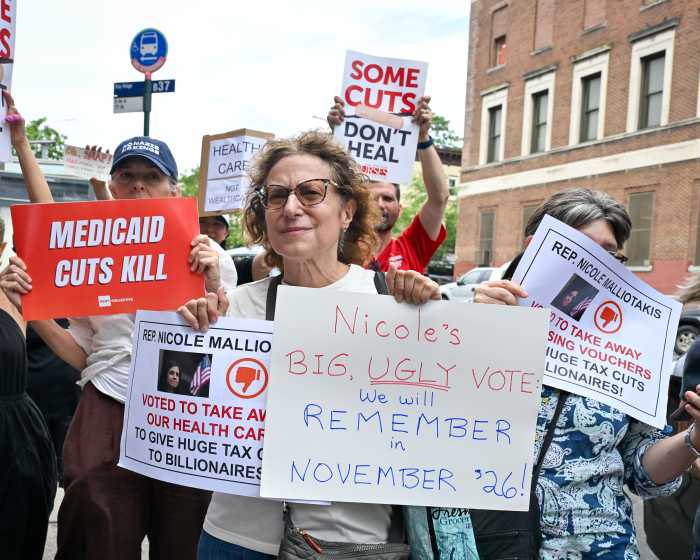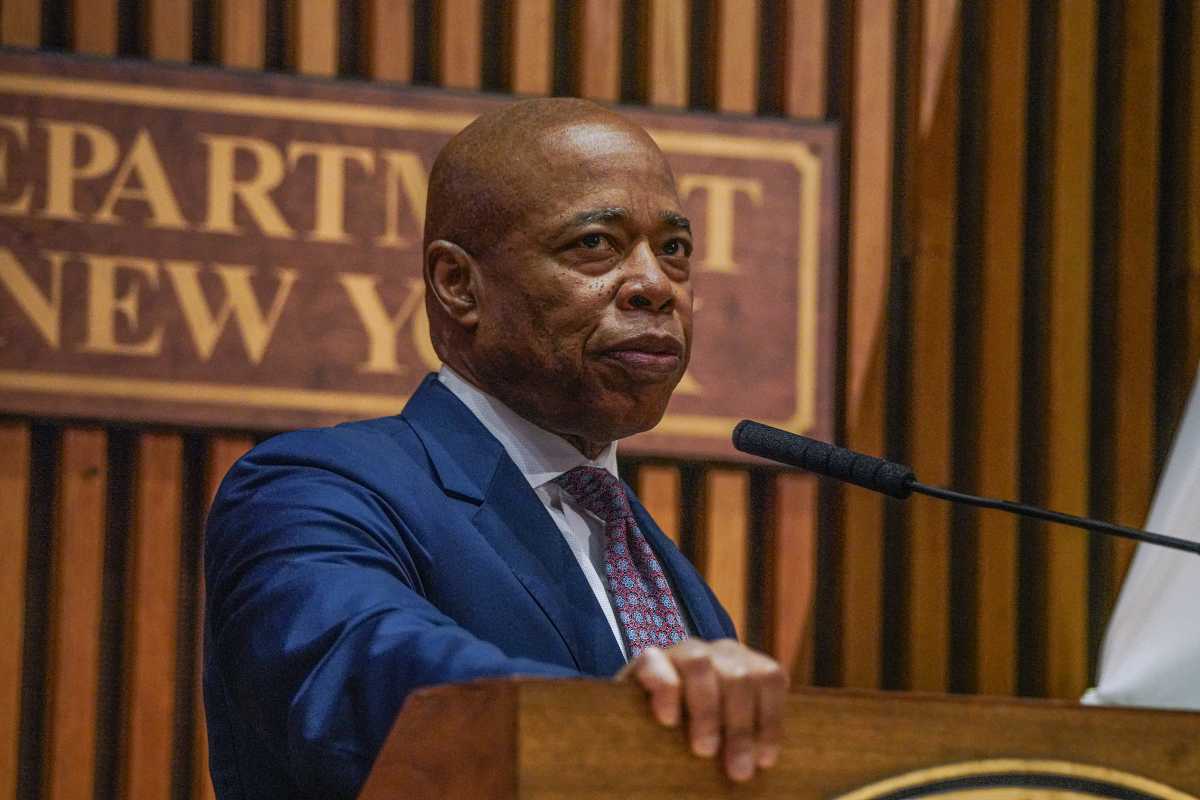Phara Souffrant Forrest is a registered nurse and a tenant activist who is currently running as the Democratic Socialists of America-endorsed candidate for the 57th Assembly seat in Crown Heights against incumbent Rep. Walter Mosley.
The Brooklyn Paper caught up with Forrest to talk about her campaign, her involvement in tenant activism, and her Crown Heights upbringing. (This conversation has been condensed and edited for clarity.)
Brooklyn Paper: Tell me how your involvement in tenant activism led to your decision to run for office?
Phara Souffrant Forrest: In 2019, I had signed up to be a part of a protest, a civil disobedience in Albany. It was planned that we were going to go, we were going to sit down and then we would get arrested and that was it. We get on the bus and go home. So we had planned for it to be very nonviolent, but the violence that happened that day was very uncalled for. It was from the security guard at the capitol building. So at that point I was like, “Okay, so who’s going to have our backs?” because clearly we’re not asking for something that we don’t pay for. We pay our rent. We’re just asking for dignity, you know? And when I looked around there were no elected officials standing with us. We were basically by ourselves, with our movement, by ourselves. I was so down. I was low, I said, ‘Wow, we really are alone.’ That’s when I had decided to run for office. I wasn’t sure which office yet, but I knew that I wanted to do something politically to change the policies that govern the tenant movement, tenant rights and really make sure we set up a playing field that’s fair for tenants.
BP: Crown Heights is something of a hotbed of tenant activism. How has living there shaped your views on housing and other issues?
PSF: Growing up in Crown Heights, it’s such a diverse community and my community is tight-knit. There’s commonality and a struggle that really unites us. New York City is big, but my community feels really small because we all know each other or we know somebody’s auntie and grandma or whatever. But in the past few years, especially when I came back from school, I noticed that the character of the neighborhood has changed. That’s because new investments are coming in and new building developers and developments are coming. That’s pushing out what made my neighborhood what it was.
I think a lot of people think that my neighborhood is what it is because of drugs or crime. No, my neighborhood is what it is because of the people, the roti and the rice, and the people who speak patois versus who speaks the Brooklyn slang, all of that mix of what Crown Heights is. So seeing that gentrification and that displacement, what I find crazy is that the incumbent leadership in Albany is just not standing up for all parts of this community. I think it’s time that we have someone who’s looking out for everyone in the district.
BP: What specifically do you think the incumbent leadership should be doing?
PSF: I think that it’s time that we have someone who is just not progressive in name, but rather progressive in action.
Even looking now with the COVID-19 crisis, we’re not really hearing much from our incumbent. Yeah, you might throw a tweet that’s very long and jargon-heavy, but you’re not really speaking to what tenants need, which is simply I will fight to cancel rent and I will fight to make sure our healthcare workers are protected and New York State is protected with the New York Health Act. If you’re not talking about that, then I don’t really think that you’re talking about much.
Even the things that he does talk about as part of his platform, especially community youth service programs, that he talks about all the time and increasing employment. He’s the chairperson of the committee on Skills Development and Career Education — that committee has not met or produced anything in the last three years!
BP: How has your experience as a field nurse informed your views on healthcare?
Everything in my life is rooted in advocacy. From the start of my training, I was trained to be a complete and total advocate for my patient. And being responsible for the health and the wellbeing of another human being is not a simple task. It’s not something I take lightly. So when it comes down to being an advocate, you have to think about the family, the person’s environment. You have to talk about where they live, what jobs they hold, if their family member is able to take care of them.
So if you’re not treating all the aspects of this person, then you’re not doing much except for just throwing a pill at the person. That’s how I see how community care is. The same idea is if we’re talking about housing. I cannot talk about housing and not talk about economic justice. We can’t talk about housing and not talk about healthcare and environmental pollutants and all this. So while I can be a tenant advocate, I have to talk about all these other sectors as I would talk about a patient. So I love it when people talk about, “Oh, you’re a nurse. What do you think you’re going to do in office?” I’m going to assess, plan, implement, and evaluate. That’s my job. And I think that’s the job of any policymaker.
BP: How can do you think our state legislature better serve the city’s hospital system?
First of all, the governor needs to stop, cease, desist making cuts to our healthcare budget; $2.5 billion needs to come back in. Don’t cut it out. In fact, you need to add more. Now that you’ve stopped cutting the healthcare budget, think about ways to then add to the budget. So put in progressive taxes to tax billionaires and millionaires and corporations.
And then we talk about how exactly Medicaid is designed, we need to talk about how can we make sure that our safety net hospitals are maxing out their dollars. So instead of thinking of ways to cut from Medicaid, how can we add to it so that our most vulnerable populations will receive the care that they deserve right in their community? So I don’t have to travel to Mount Sinai. I don’t have to travel to Lenox Hill. I can go to Downstate or Kings County and know that I’m getting not even the same, but superb quality care that I need to survive and not even just survive, but to thrive and really be the best person that I can be.
























